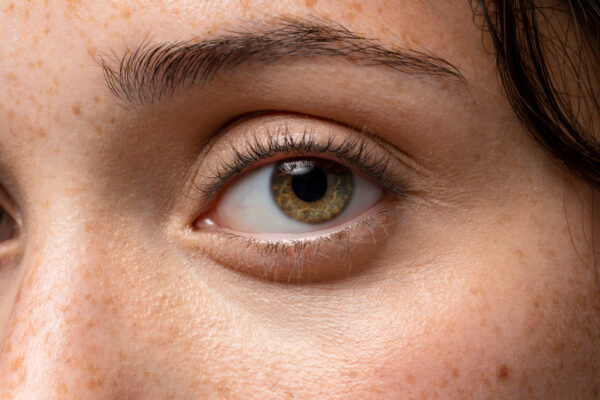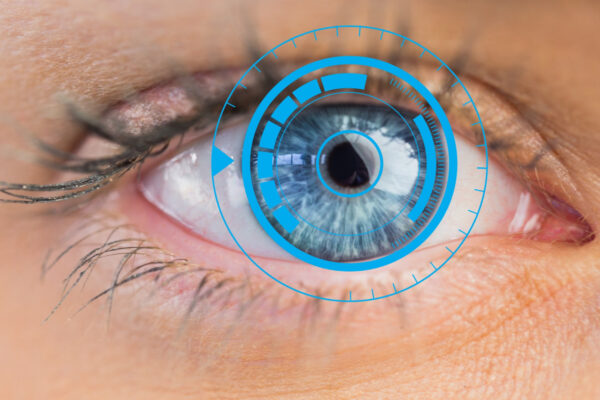Whether you’re at work, at play, or relaxing around the house, there’s never a bad time to put the focus on your vision health. From eating well to making sure to have regular exams with your eye care professional, good eye health starts with awareness of what to do, and what not to do.
Eye Care 101: Tips for Maintaining Eye Health and Avoiding Vision Problems
Good Eating Habits for Eye Health
Eating well is one of the hidden keys to maintaining good vision health, and there are plenty of tasty options that also deliver vital nutrients. According to the American Academy of Ophthalmology, there quite a few common foods that may provide a boost to eye health:
- Antioxidants – Foods rich in antioxidants, including many types of fruits and vegetables, are common in many “healthy eating” guides. These flavorful foods may help reduce the risk of vision problems related to aging.
- Leafy Greens – High in important nutrients including lutein and zeaxanthin, leafy green vegetables like kale and spinach may help lower the risk of common vision problems like cataracts.
- Omega 3 Fatty Acids – Enjoying a diet that includes popular fish like salmon and halibut is a good way to make sure you’re getting omega-3 fatty acids, which may help lower the risk of age-related vision problems.
- Maintaining a Healthy Weight – Eating healthy and exercising are key to maintaining a healthy weight, which has many benefits for both vision health and overall health.

Protection from Sunlight and UV Rays
Spending time outdoors doesn’t have to be hard on the eyes, because proper eyewear can provide substantial protection from UV rays.
- Simple Sun Safety – No matter how beautiful the scene, staring at the sun is dangerous to vision health. Even if you have a great pair of sunglasses, it’s never a good idea to stare at the sun.
- 100 Percent UV Protection – You don’t have to stare at the sun directly for harmful UV rays to reach your eyes, so it’s also important to choose eyewear that offers 100 percent UV protection.
Eye Safety for Work and Play
Are you participating in an activity with the potential for eye injuries, whether at work or at play? Wearing the right protection and taking the time to stay sanitized are key in situations with a risk of eye injury.
- Eye Safety for Sports – Looking to play your favorite sports, but worried about eye injuries? A pair of prescription sports goggles can provide ample eye protection.
- Eye Safety at Work – If you work in a profession with the potential for eye injuries, it’s important to use the right protective goggles or eyewear for the task.
- Eye Protection after LASIK – Your laser eye surgery specialist may provide protective eyewear after LASIK surgery, in order to help the healing process.
- Clean Hands for Clean Eyes – Before you put in your contacts, always make sure to wash your hands thoroughly, which may help lower the risk of infection.
Don’t Smoke
Did you know that quitting smoking can have benefits for your eye health, in addition to the many potential benefits to your overall health? It’s never too late to make the decision to quit.
Regular Rest for Eyes
Spending too much time in front of screens can strain your eyes and lead to vision issues. Giving your eyes regular breaks is essential for maintaining eye health.
- Avoiding Digital Eye Strain – Digital eye strain can come from many sources, including computer screens, TVs, and phones, so it’s important to be conscious of how much time you spend using these devices.
- Following the 20/20/20 Rule – The 20/20/20 rule is one option that can help reduce digital eye strain. Every 20 minutes while using a screen, take a break to stare at an object 20 meters away, for 20 seconds.

Keeping Up with Eye Exams
In addition to the everyday steps you can take to promote eye health, it’s also a great idea to meet with your eye care professional at regular intervals for a comprehensive eye exam.
- Comprehensive Dilated Eye Exams – A comprehensive dilated eye exam provides a very deep look into your vision health, making it an important vision health tool for many adults and senior citizens.
- Eye Exams after LASIK – Keeping up with your scheduled eye exams after a laser eye surgery procedure is a key step in the healing process, and an opportunity to ask questions about LASIK recovery and vision health.
There are many simple steps that can be taken each day to promote vision health and help avoid common vision problems. Speaking with your eye care professional is a great way to learn more about avoiding vision problems and get feedback from a trusted source on your unique eye health needs.
Categories:



